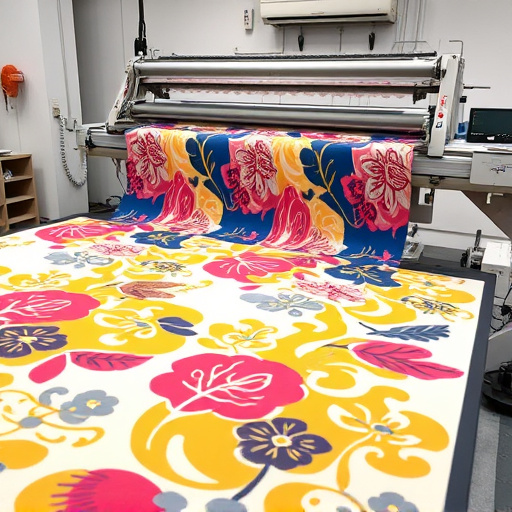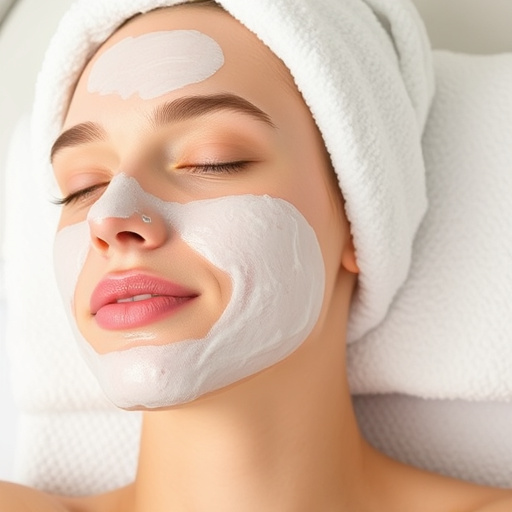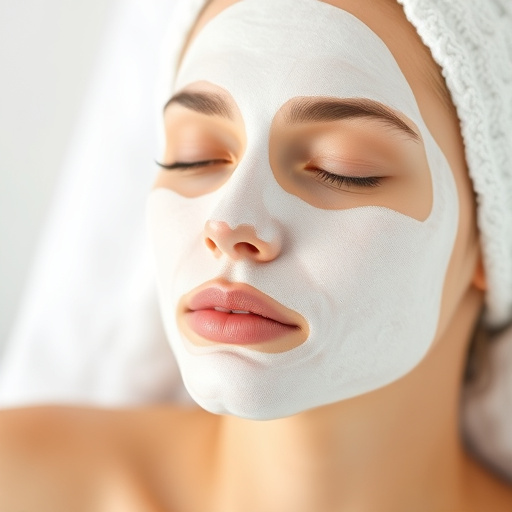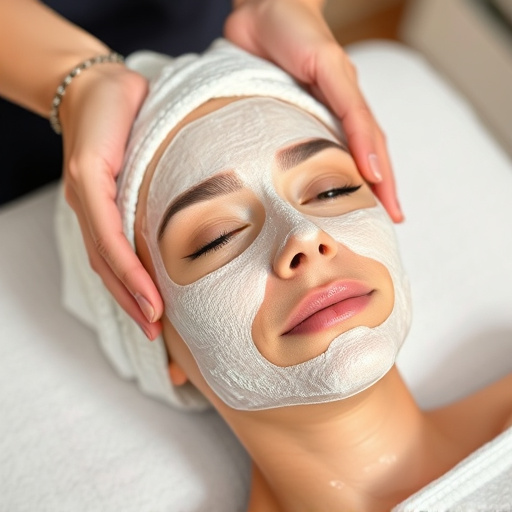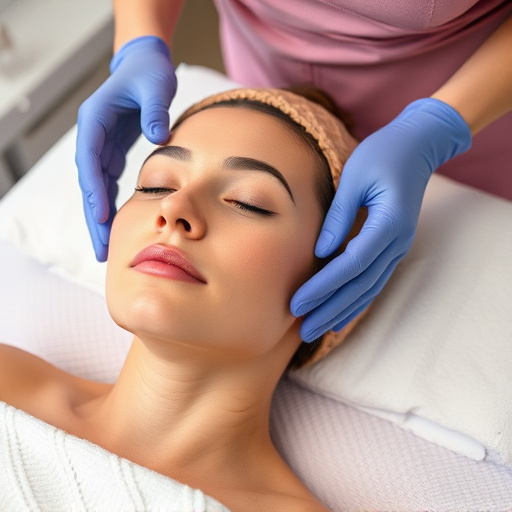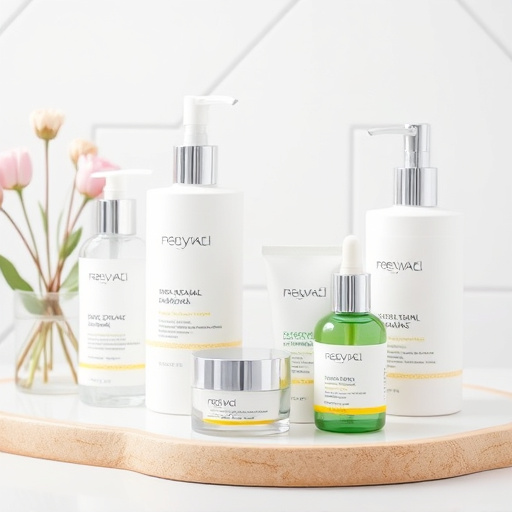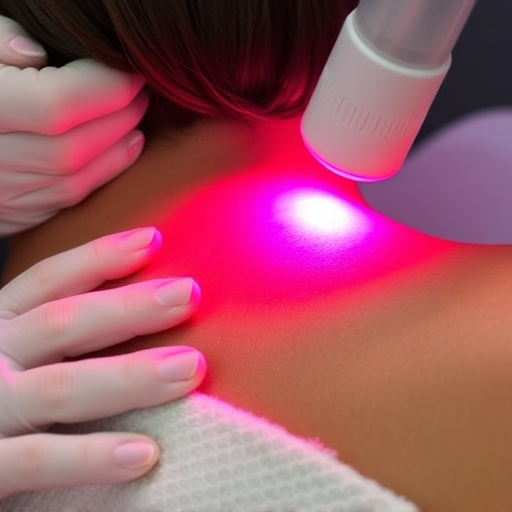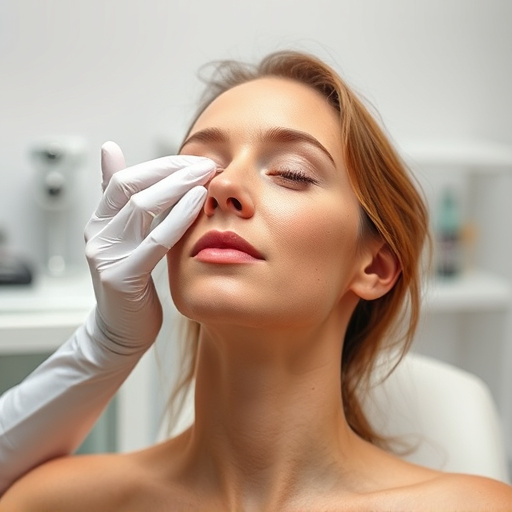Diminishing skin elasticity contributes to aging. Hydrating facial treatments offer a solution by deeply moisturizing, replenishing hydration levels essential for elastin fibers, stimulating collagen production, and protecting against damage. Key ingredients like hyaluronic acid, peptides, and antioxidants promote wrinkle reduction and enhance skin texture. Regularly incorporating hydrating facial treatments into skincare routines transforms skin texture, brightness, and overall elasticity.
Hydrating facial treatments have emerged as a powerful tool for restoring skin elasticity, a crucial component of youthful-looking skin. As we age, our skin’s natural moisture barrier weakens, leading to a decline in elasticity. Understanding this process is key to harnessing the benefits of hydration. This article explores how specific hydrating facial treatments can reverse these effects, using key components to revitalise and restore your skin’s natural bounce and suppleness.
- Understanding Skin Elasticity and its Decline
- The Role of Hydration in Restoring Elasticity
- Key Components of an Effective Hydrating Facial Treatment
Understanding Skin Elasticity and its Decline
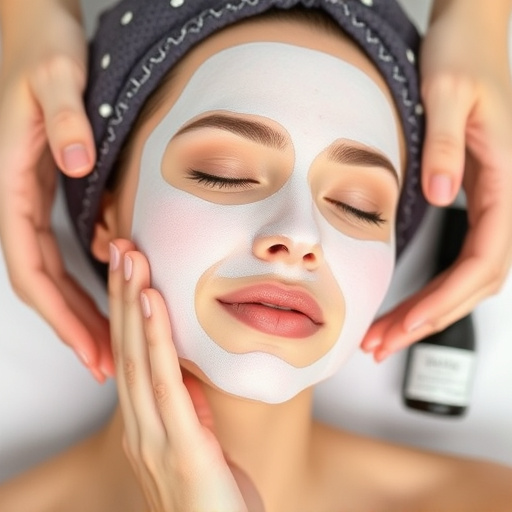
Skin elasticity refers to its ability to bounce back after being stretched or compressed. It’s a key component of youthful-looking skin, providing firmness and resilience. Over time, various factors like environmental stress, UV exposure, aging, and lifestyle choices can lead to a decline in skin elasticity. This results in wrinkles, fine lines, and sagging, giving the skin a less supple appearance.
Hydrating facial treatments play a crucial role in restoring and enhancing skin elasticity. By deeply moisturizing the skin, these treatments help replenish essential hydration levels, which is vital for maintaining elastin fibers—proteins responsible for skin’s flexibility. Customized facials, incorporating ingredients like hyaluronic acid, peptides, and antioxidants, can effectively stimulate collagen production while protecting against further damage, thereby promoting wrinkle reduction and improving overall skin texture.
The Role of Hydration in Restoring Elasticity
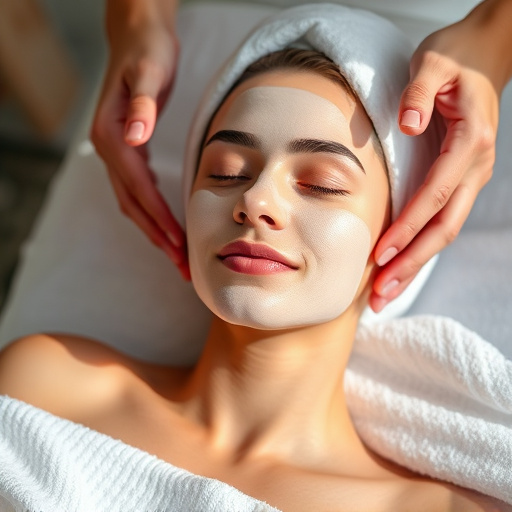
Hydration plays a pivotal role in restoring skin elasticity, a key component of youthful-looking skin. The skin’s natural moisture barrier is essential for maintaining its suppleness and resilience. A well-hydrated face experiences improved flexibility, allowing it to bounce back from stretching and creasing.
Professional skincare experts emphasize that adequate hydration combats the visible signs of aging, including fine lines and wrinkles. Regularly indulging in a hydrating facial treatment can transform the skin’s texture, enhancing its brightness and overall radiance. This process not only provides immediate nourishment but also promotes long-term health, ensuring the skin remains vibrant and elastic for longer periods.
Key Components of an Effective Hydrating Facial Treatment
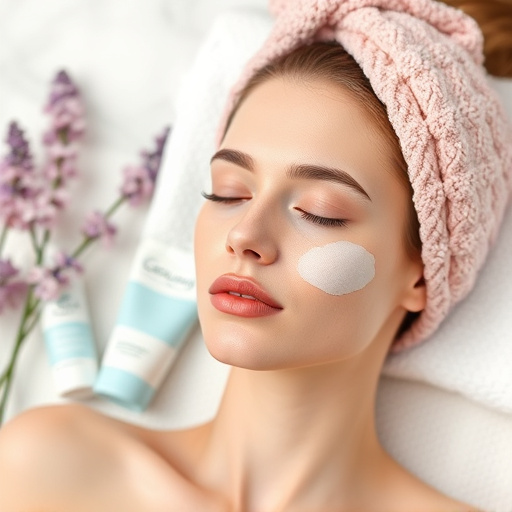
A truly effective hydrating facial treatment goes beyond mere moisture application; it’s a multi-faceted approach that targets key elements for skin rejuvenation and elasticity restoration. The first step often involves deep cleansing to remove impurities and makeup residues, allowing better absorption of subsequent products. This is followed by the application of potent hydrators like hyaluronic acid, known for its ability to bind water molecules to the skin, providing intense moisture retention.
Vitamins, particularly Vitamin C and E, are also integral components as they offer antioxidant benefits that protect the skin from environmental stressors. Additionally, natural extracts like aloe vera and green tea can soothe and calm the skin while further enhancing hydration levels. Non-surgical treatments such as hydrating facials often conclude with a cooling or calming mask to seal in moisture, leaving the skin feeling plump, supple, and visibly restored.
Hydrating facial treatments have emerged as a powerful tool to combat skin elasticity loss, offering a revitalizing experience. By understanding the science behind skin elasticity and incorporating key components like hyaluronic acid and glycerin into routines, individuals can achieve a youthful glow. These treatments not only provide immediate hydration but also stimulate collagen production, ensuring long-lasting results. Incorporating a regular hydrating facial regimen into your self-care routine is an excellent step towards achieving and maintaining supple, elastic skin.


